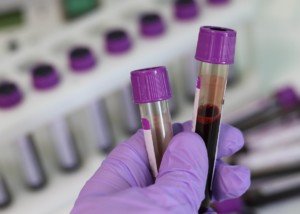
A myocardial infarction is a heart attack. Troponins “leak” from damaged heart tissue and make their way to the bloodstream.
Normally in the absence of a heart attack the levels are very low. A heart attack will substantially spike the levels.
But can there be an exception to this rule?
“No. The definition of a myocardial infarction is myocardial/muscle damage, and that is defined by the presence of troponins in blood,” says Pilar Stevens-Cohen, MD, FACC, Department of Cardiology, South Nassau Communities Hospital.
If someone has chest pain and an abnormal ECG, but negative troponins, Dr. Stevens-Cohen says that the diagnosis would be unstable angina.
“The management is the same. However, the definition of infarction implies muscle necrosis [death] and we measure that by troponins and CPK levels.”
CPK is an enzyme found in the heart. “The levels usually rise within six hours of presentation and can remain elevated for 1-2 weeks following an event.”
If you go to the emergency room complaining of chest pain or “shortness of breath,” a doctor will order a test to check the level of troponins.
The doctor wants to rule out (or in) a heart attack as quickly as possible, and in fact, the results of this highly sensitive blood test will come back amazingly fast.
However, one test is not enough. If you had a heart attack, that initial blood draw — if done soon enough after the cardiac event–won’t necessarily show an elevation into the heart attack range.
Remember, it takes several hours for the levels to rise.
This is why at least four hours after the first test the doctor will want to have another blood draw taken.
If the patient indeed suffered a heart attack, then for sure, several hours later (it may be four, five or six, depending on the ordering-physician), the troponin level will be elevated into the definitive range for a myocardial infarction.
So maybe five minutes after a heart attack the troponin level is normal, but it won’t be several hours later — it will clearly be elevated enough to show heart muscle damage.

Dr. Stevens-Cohen is board certified in cardiology, nuclear cardiology, echocardiography and internal medicine.
 Lorra Garrick has been covering medical, fitness and cybersecurity topics for many years, having written thousands of articles for print magazines and websites, including as a ghostwriter. She’s also a former ACE-certified personal trainer.
Lorra Garrick has been covering medical, fitness and cybersecurity topics for many years, having written thousands of articles for print magazines and websites, including as a ghostwriter. She’s also a former ACE-certified personal trainer.
.









































